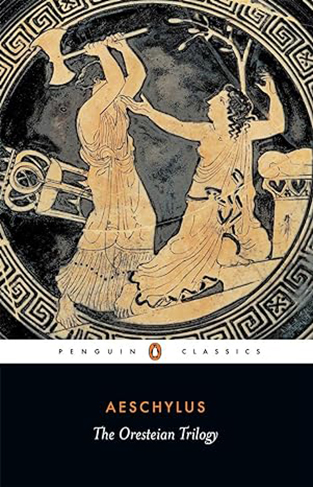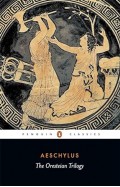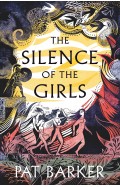The Oresteian Trilogy - Agamemnon; The Choephori; The Eumenides
By: Aeschylus
-
Rs 2,515.50
- Rs 2,795.00
- 10%
You save Rs 279.50.
Due to constant currency fluctuation, prices are subject to change with or without notice.
Aeschylus (525-c.456 bc) set his great trilogy in the immediate aftermath of the Fall of Troy, when King Agamemnon returns to Argos, a victor in war. Agamemnon depicts the hero's discovery that his family has been destroyed by his wife's infidelity and ends with his death at her callous hand. Clytemnestra's crime is repaid in The Choephori when her outraged son Orestes kills both her and her lover. The Eumenides then follows Orestes as he is hounded to Athens by the Furies' law of vengeance and depicts Athene replacing the bloody cycle of revenge with a system of civil justice. Written in the years after the Battle of Marathon, The Oresteian Trilogy affirmed the deliverance of democratic Athens not only from Persian conquest, but also from its own barbaric past.
Aeschylus (525-c.456 bc) set his great trilogy in the immediate aftermath of the Fall of Troy, when King Agamemnon returns to Argos, a victor in war. Agamemnon depicts the hero's discovery that his family has been destroyed by his wife's infidelity and ends with his death at her callous hand. Clytemnestra's crime is repaid in The Choephori when her outraged son Orestes kills both her and her lover. The Eumenides then follows Orestes as he is hounded to Athens by the Furies' law of vengeance and depicts Athene replacing the bloody cycle of revenge with a system of civil justice. Written in the years after the Battle of Marathon, The Oresteian Trilogy affirmed the deliverance of democratic Athens not only from Persian conquest, but also from its own barbaric past.
The Oresteian Trilogy - Agamemnon; The Choephori; The Eumenides
By: Aeschylus
Rs 2,515.50 Rs 2,795.00 Ex Tax :Rs 2,515.50
Zubin Mehta: A Musical Journey (An Authorized Biography)
By: VOID - Bakhtiar K. Dadabhoy
Rs 630.00 Rs 1,050.00 Ex Tax :Rs 630.00
Elektra: No.1 Sunday Times Bestseller from the Author of ARIADNE
By: Jennifer Saint
Rs 2,965.50 Rs 3,295.00 Ex Tax :Rs 2,965.50
The Great Degeneration: How Institutions Decay and Economies Die
By: Niall Ferguson
Rs 1,116.00 Rs 1,395.00 Ex Tax :Rs 1,116.00
Elektra: No.1 Sunday Times Bestseller from the Author of ARIADNE
By: Jennifer Saint
Rs 2,965.50 Rs 3,295.00 Ex Tax :Rs 2,965.50
No recently viewed books available at the moment.
Zubin Mehta: A Musical Journey (An Authorized Biography)
By: VOID - Bakhtiar K. Dadabhoy
Rs 630.00 Rs 1,050.00 Ex Tax :Rs 630.00
The Oresteian Trilogy - Agamemnon; The Choephori; The Eumenides
By: Aeschylus
Rs 2,515.50 Rs 2,795.00 Ex Tax :Rs 2,515.50
Elektra: No.1 Sunday Times Bestseller from the Author of ARIADNE
By: Jennifer Saint
Rs 2,965.50 Rs 3,295.00 Ex Tax :Rs 2,965.50














-120x187.jpg?q6)
















